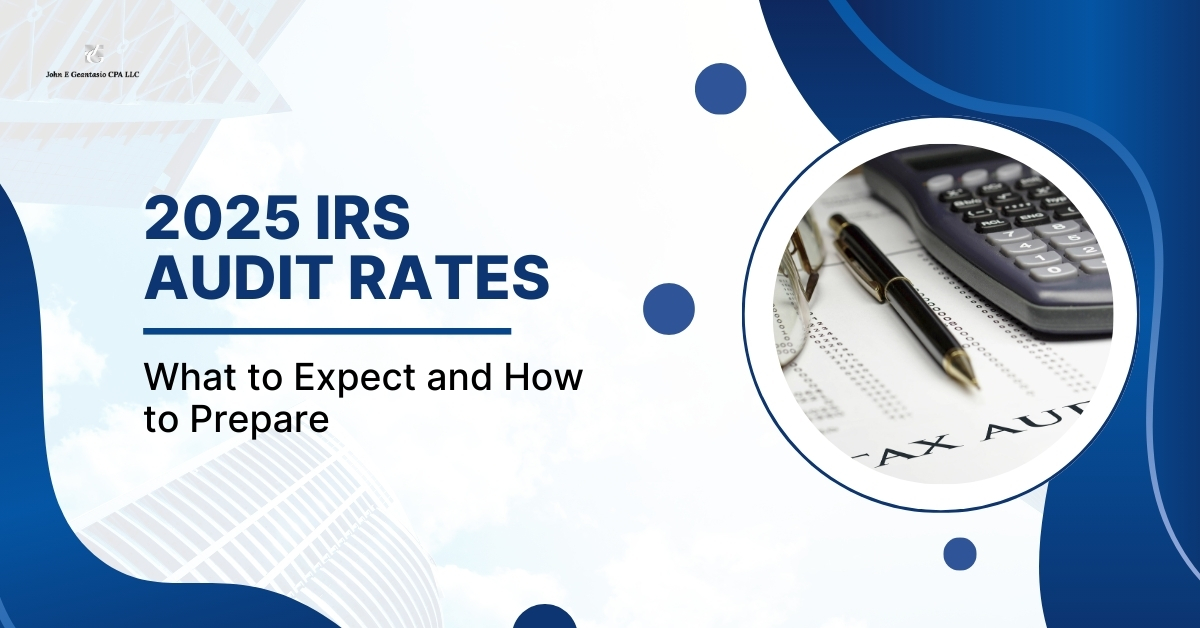Understanding IRS Audits: A Comprehensive Guide
Facing an IRS audit notice can be an unsettling experience for many taxpayers. However, it is essential to approach this situation with calmness and preparedness rather than panic. The Internal Revenue Service (IRS) conducts audits as a method of verifying the accuracy of tax returns and ensuring compliance with tax laws. Receiving an audit notice is not necessarily an indication of wrongdoing, but it does require immediate and careful attention to deadlines and documentation.
This article aims to provide a detailed examination of the IRS audit process, the importance of timely responses, strategies for managing audits, and the benefits of professional assistance in navigating these complex proceedings. Our goal at Legal Marketplace CONSULTANT is to equip you with knowledge, empowering you to handle an IRS audit effectively and minimize potential risks.
What Is an IRS Audit?
An IRS audit is a thorough examination of an individual's or business's tax returns and associated financial information. Auditors review the reported income, deductions, credits, and other tax-related details to verify their correctness. The IRS uses audits to ensure that taxpayers are paying the correct amount of taxes as required by law.
There are various types of audits, including correspondence audits conducted through mail, office audits held at a local IRS office, and field audits where an IRS agent visits the taxpayer’s home, business, or accountant’s office. Each audit type varies in complexity and scope.
Why Do IRS Audits Occur?
IRS audits are typically triggered by certain red flags or inconsistencies in submitted tax returns. Some common reasons an audit may occur include:
- Unusually high deductions relative to income;
- Large discrepancies between reported income and third-party information;
- Mathematical errors or missing information;
- Random selection as part of IRS computerized screening;
- Discrepancies in reported income, such as between forms W-2 and 1099;
- Previous audit findings;
- Self-employment reporting issues;
- Claiming credits or deductions that require thorough documentation;
Understanding the potential triggers for an audit can help taxpayers prepare and avoid errors in their filings.
Receiving an IRS Audit Notice: Steps to Take Immediately
The IRS audit notice will inform you about the type of audit and what documents or information you need to provide. It is crucial not to ignore this notice, as missing deadlines or failing to respond may result in penalties, additional taxes, or enforced collection actions.
Upon receiving an audit notice, consider the following critical steps:
- Read the notice carefully to understand the scope and requirements;
- Mark all deadlines on your calendar to ensure timely response;
- Gather all relevant tax returns, receipts, records, and correspondence that support your filings;
- Review your financial documents systematically to identify areas auditors are likely to focus on;
- Avoid making hasty or incomplete responses; accuracy and thoroughness are paramount;
- Seek professional advice from a tax attorney or certified public accountant (CPA) experienced in IRS audits;
Preparing Documentation for the Audit
Proper documentation is the backbone of a successful audit defense. Auditors primarily verify the consistency and legitimacy of the financial information you reported. The following categories of documents are typically essential:
- Copies of the tax returns under audit;
- Receipts and invoices supporting income and deductions;
- Bank statements and canceled checks;
- Statements from employers or clients (e.g., W-2, 1099 forms);
- Contracts, agreements, and business records;
- Proof of charitable contributions;
- Records for deductions such as medical expenses, mortgage interest, and education costs;
Organizing these documents neatly and labeling them clearly can facilitate a smoother audit process and display your commitment to transparency.
Understanding What IRS Auditors Look For
Contrary to popular belief, IRS auditors are not only verifying numeric accuracy but primarily checking for consistency across the information provided. They look for matching details between different forms, logical coherence in claimed expenses, legitimate income reporting, and adherence to tax regulations.
Auditors may also seek explanations for unusual transactions, discrepancies, or large fluctuations compared to previous years. Demonstrating a clear and reasonable justification for these can reduce audit complications.
The Role of Legal and Financial Professionals
Engaging a tax attorney or CPA can be invaluable during an IRS audit. These professionals possess knowledge of tax laws, audit procedures, and effective communication strategies with IRS agents. Their involvement can prevent costly mistakes, misinterpretations, or missed deadlines.
Professionals assist in:
- Reviewing your tax return and audit notice for potential issues;
- Preparing a comprehensive response to IRS inquiries;
- Negotiating with auditors on your behalf;
- Advising on legal rights and possible defenses;
- Minimizing financial exposure and penalties.
Their expertise contributes to a more controlled audit experience and better outcomes.
Common Mistakes to Avoid During an IRS Audit
Taxpayers often make errors that complicate the audit process. Avoid these pitfalls to improve your chances of a favorable result:
- Ignoring or delaying response to audit notices;
- Submitting incomplete or inaccurate documentation;
- Attempting to handle complex issues without professional advice;
- Providing inconsistent or conflicting explanations;
- Discussing your case publicly or on social media;
- Failing to keep copies of all communication and documents sent to the IRS;
How to Communicate Effectively with the IRS
Clear and professional communication with the IRS is critical during an audit. Here are some guidelines:
- Respond promptly to all IRS correspondence;
- Provide only the requested information unless advised by your representative;
- Keep detailed records of all communications, including dates, agents’ names, and content;
- Remain respectful and cooperative;
- Avoid volunteering unnecessary information;
- Consult with your tax professional before sending responses.
What Happens After the Audit?
Once the audit is complete, the IRS will either accept your tax return as filed, propose changes, or recommend additional taxes, penalties, or interest. You will receive an audit report summarizing the findings and any adjustments.
If you disagree with the results, you have the right to appeal the decision or request a conference with an IRS appeals officer. Ultimately, understanding your options post-audit empowers you to take appropriate action.
Tips for Prevention: Avoiding Future IRS Audits
While it may not be possible to guarantee no future audits, implementing best practices can reduce risks significantly:
- Ensure accurate and honest reporting of all income;
- Maintain complete and organized records year-round;
- Double-check your tax returns for errors before filing;
- Claim only legitimate deductions and credits with proper documentation;
- File your tax returns on time;
- Work with qualified tax professionals for complex filings;
When to Seek Legal Assistance
In situations where audits become contentious, involve substantial financial consequences, or raise potential legal issues such as fraud allegations, obtaining legal counsel is strongly recommended. Tax attorneys are specialized in representing clients before the IRS and can help protect your rights throughout the audit process and any subsequent litigation.
At Legal Marketplace CONSULTANT, we offer expert legal help tailored to your audit needs. For professional assistance, please reach out through the contact details provided in our bio or send a private message for confidential consultation.
Summary of Key Points to Remember
- Always respond promptly to IRS audit notices to avoid penalties;
- Gather all relevant documents and organize them before the audit;
- Understand that auditors verify consistency as well as numeric accuracy;
- Engage tax professionals for better management and communication;
- Avoid common mistakes such as incomplete responses and ignoring deadlines;
- Maintain professionalism and clarity in communication with the IRS;
- Explore appeal options if you disagree with audit results;
Facing an IRS audit, while challenging, does not have to be overwhelming. With proper understanding, preparation, and professional guidance, taxpayers can navigate this process confidently and protect their financial interests. Legal Marketplace CONSULTANT is committed to providing knowledgeable support at every step to ensure your rights are upheld and the audit is resolved efficiently.
Legal Marketplace CONSULTANT offers expert legal services specializing in tax law, IRS audits, and comprehensive legal support for businesses and individuals. Our experienced team includes attorneys, tax consultants, auditors, and accountants dedicated to delivering thorough and effective solutions. For assistance, contact us through the bio or send a private message for confidential consultation.































